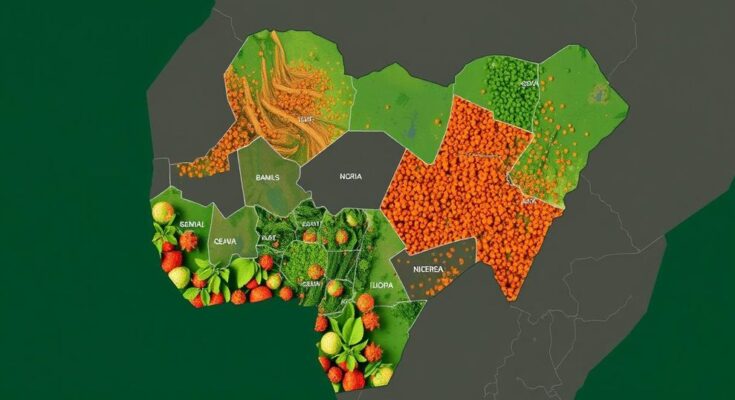Climate change and armed conflict in northeastern Nigeria are causing a dramatic rise in malnutrition cases, with a reported 24 percent increase in young children affected. The violence has displaced millions and hindered agricultural productivity, exacerbated by climate-related challenges, leading to severe food shortages anticipated for over six million individuals in the Lake Chad region.
The interplay of climate change and ongoing armed conflict in northeastern Nigeria has precipitated a significant rise in severe malnutrition cases among vulnerable populations. The International Committee of the Red Cross (ICRC) reports a troubling trend wherein families residing in the Lake Chad region are increasingly unable to secure adequate food supplies. Clinics in the area have observed a 24 percent surge in the number of young children afflicted by malnutrition in comparison to the prior year. Individuals such as Rabiatu Jubrilla recount heart-wrenching experiences, such as when she brought her son to the ICRC’s stabilisation clinic, where he was unable to sit independently. “He was healthy when I delivered him, but at 1 year 9 months old, I stopped breastfeeding him. He began to lose weight, and we thought it was because he was not able to get breast milk.” Moreover, the ongoing armed conflict is a leading contributor to the food crisis, displacing millions and disrupting livelihoods, while restricting access to agricultural land. Paul Ezra, a farmer from Madagali village in Adamawa State, lamented, “We don’t have enough farmland. Before, we used to go out in the fields to farm. But now, Boko Haram and other armed groups have taken over the bush.” The situation has worsened since the beginning of the year, with the ICRC’s Nigeria Head of Delegation, Yann Bonzon, stating that the violence has escalated dramatically, coinciding with the rise in food scarcity. He disclosed that combat activities in the Lake Chad region have surged by 58 percent in the first half of 2024. Furthermore, the area’s dependence on subsistence farming renders it particularly susceptible to climate-related challenges, including erratic rainfall patterns that disrupt food production. In addition, this year’s heavy floods have obliterated seeds and extinguished hopes for a forthcoming harvest after an already difficult lean season, resulting in dire consequences for local populations. Abubakar Bello Duhu, another farmer, shared, “We have people who fainted and are at the hospital. Others have died because there is not enough to eat.” The ICRC has projected that over six million individuals in the Lake Chad region will face food shortages in the impending months due to the combined effects of conflict and climate change.
The situation in northeastern Nigeria exemplifies a broader crisis where climate change and armed conflict converge to exacerbate food insecurity and malnutrition. As changing weather patterns lead to diminished agricultural yields, the ongoing violence, particularly from groups like Boko Haram, complicates efforts to restore food security and maintain livelihoods. The Lake Chad region, primarily dependent on subsistence agriculture, has witnessed significant disruptions due to both environmental and social factors, inevitably leading to a pronounced humanitarian crisis.
In summary, the ongoing humanitarian crisis in northeastern Nigeria is largely driven by the dual forces of climate change and escalating armed conflict, resulting in alarming rates of malnutrition among vulnerable populations. The testimonies and statistics underscore a critical need for comprehensive interventions to address both immediate food shortages and the underlying factors contributing to this crisis, including improved security and climate resilience efforts.
Original Source: www.africanews.com




